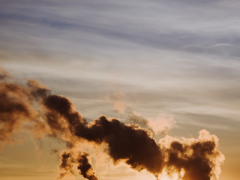The importance of understanding differences in climate policy scenario outcomes
To understand the consequences of climate policies, scientists use scenarios to explore the future. These influential scenarios are based on complex models of the global energy system. Between these scenarios big differences arise in emissions and the use of different energy sources. A new paper in Nature examines which of these scenario outcomes are in fact robust matters of consensus rather than being dependent on which computer model or scenario assumptions were used. A significant reduction of fossil fuel use turns out to be inevitable to meet the Paris goals: it consistently occurs across all models. On the other hand, the choice of specific renewable energy sources (e.g. wind, solar or geothermal) is highly model-dependent. Policy makers should be aware of the differences between models and should avoid making policy choices based on the outcomes of one single model, researchers from PBL Netherlands Environmental Agency say.
Policy makers need thorough projections of the future to be able to formulate effective climate policies. These are provided by model based climate policy scenarios. For the last IPCC report (AR6) over 1600 of such scenarios were collected. They are based on different models with many characteristics and assumptions and range from a temperature rise below 1.5 degrees to over 4 degrees by the end of the century. It is important for policy makers to know which of the scenario outcomes are consistently found regardless of which model was used and which outcomes depend on the model of choice. While this attribution question had been studied for specific pathways or technologies, it had so far never been structurally and quantitively been analysed across all scenarios. Therefore a team of researchers from PBL distinguished whether variations in these scenario outcomes are driven by climate targets in the scenarios, by disagreement between the models themselves or by external assumptions on for instance life style and socio-economic development.
Robust outcome: cutting fossil fuel use
How to address the use of fossil fuels has been one of the major matters at stake at the COP28 in Dubai, after the president of the conference was quoted as saying there is no scientific agreement behind phasing out fossil fuels. In their new Nature paper, however, PBL researchers find that a significant reduction of fossil fuels, accompanied by a phase-in of renewables is a robust outcome in scenarios with ambitious climate targets, regardless of which model is used. Two other notable consistent outcomes are rapid deployment of wind energy before 2030 and the overall use of carbon capture and storage (CCS) across all models.
Significant divergence in renewable technologies and energy carriers
On the other hand, exactly which renewable energy sources will dominate the market and where CCS will be applied does heavily depend on which model is used to answer the questions. One explanation is that models have different assumptions on costs reductions for different technologies. The research indicates a wide range of possible outcomes for technology development. Also, use of energy and its carriers in different sectors differs greatly between models: e.g. the models disagree on the dominant energy carriers for industry, transportation and buildings. Model disagreement can point to a lack of knowledge, but can also indicate a greater degree of freedom for policy makers to follow different policy preferences.
More diversity in model narratives
The paper also analysed the impact of external assumptions and constraints, such as lifestyle choices and economic growth, on model outcomes – aspects that can typically be normative or political. Even though highly relevant for designing climate policy, this impact turns out to be surprisingly low, which is a result in itself. The small impact is probably related to the fact that most scenarios in the IPCC AR6 database are based on ‘middle of the road’ socio-economic assumptions and cost optimality. The authors conclude that a wider range of narratives should be used when constructing climate policy scenarios. More diversity in economic growth rates, lifestyle and technology preferences beyond costs probably give a better indication of the realm of all possible outcomes. ‘Apart from raising awareness, we believe designing alternative scenario narratives and using scenario-comparison methods that can detect bias and model impact should become a core part of future mitigation research,’ says lead author Mark Dekker.
Focus for future research and robust basis for policy making
The findings of this paper can be used for formulating research agendas. The identified areas of model disagreement represent obvious subjects for future research to reduce uncertainties. It is crucial for any user of mitigation scenarios—both academic and public—to be aware of these varying degrees of robustness in current mitigation literature.
Beware of using one single model
The findings of this new research are neatly complemented by a recently published paper in Nature Energy by the same group of authors. In it they analysed the implicit preferred outcomes of individual energy models, to create so-called ‘fingerprints’. It is still relatively common to use single model studies for reports to inform policy making. Both papers stress the importance of being aware of how a particular model compares to the whole set. ‘The range in model fingerprints indicates that studies using only single models should always be interpreted in the context of the larger model ensemble. The fingerprints show how individual models can be more inclined to favour, say, high quantities of solar panels or CCS,’ according to lead author Mark Dekker of PBL. ‘These results are extreme useful for future IPCC reports to reduce uncertainty in projections, as well as for formulating future research agendas,’ adds co-author Detlef van Vuuren (PBL and Utrecht University).




